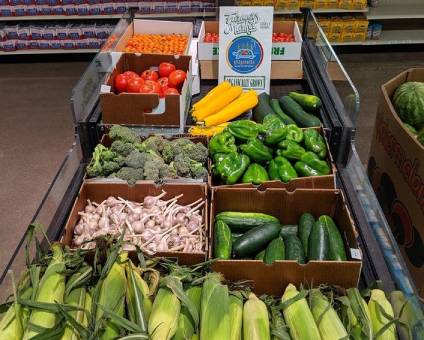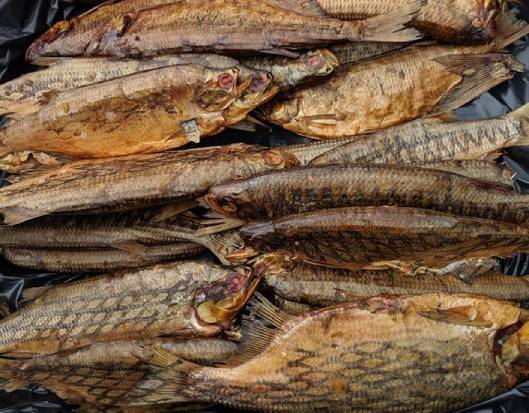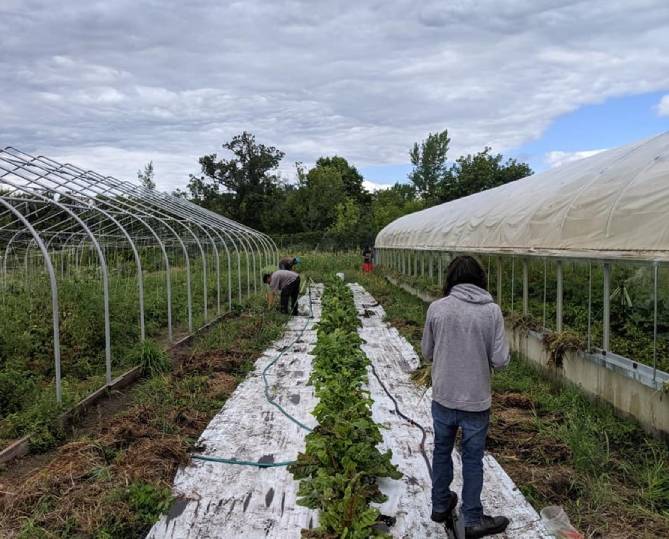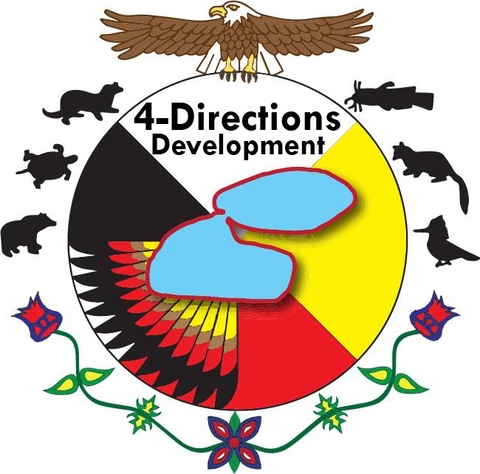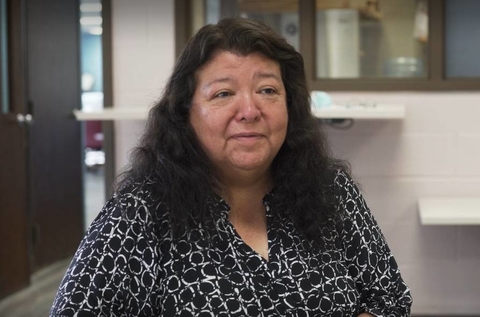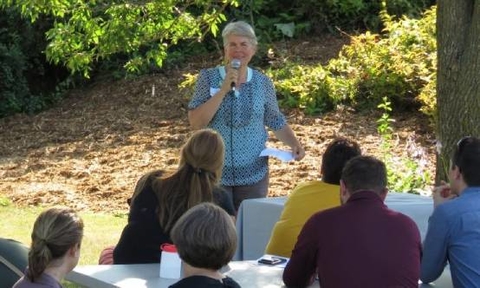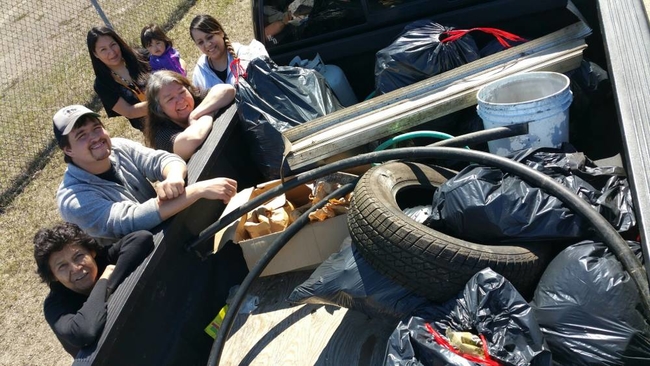Videos, ways to connect, and more information about 4-Directions Development and its programming at the Red Lake Nation, including the Gitigaanike Foods Initiative, are available on the nonprofit’s website.
Highlighting RSDP partners
As part of RSDP’s sustainability storytelling efforts, we are launching a new feature published periodically in our Happenings Newsletter highlighting perspectives from partner organizations and community leaders across Greater Minnesota. Through stories like these, we will have the opportunity to highlight the work of diverse organizations and hear from underrepresented voices.
Even as the days shorten and frost stretches across northwestern Minnesota, Sharon James is not slowing down.
Keeping a watchful eye on four of her grandchildren, who were home from school on the crisp day in late-October when we spoke, James detailed her passion and work supporting entrepreneurship and local food for the Red Lake Band of Chippewa Indians (Red Lake Nation).
“The Tribe asked if I could set up an entrepreneurship program back in 2012, and I’ve been here ever since,” James said. “It’s been an exciting and rewarding journey.”
Now serving as executive director of 4-Directions Development (4DD), James helped establish the nonprofit following early success in the entrepreneurship training program. She leads the organization’s fundraising and programming to “attract, develop and support entrepreneurial, social and community development” by providing training, technical assistance, financing and facilities to the Red Lake Nation and community members.
“We at 4DD are all about supporting a wide variety of entrepreneurs—new farmers, artists, retailers and more,” James said. “Our work is about helping develop the Tribe’s local economy, to keep dollars and resources circulating here.”
Training Native farmers and food entrepreneurs
As part of her work, James oversees the Gitigaanike Foods Initiative. The program trains emerging Native farmers and incubates food businesses, with goals that include decreasing diet-related health issues, increasing access to local healthy foods and developing a local foods economy in Red Lake.
James noted how initial support from Red Lake Nation colleagues was essential in getting this program off the ground five years ago, including from Red Lake Economic Development and Planning Department’s Cherilyn Spears and colleagues at Oshkiimaajitahdah, Department of Natural Resources and Tribal Engineering. Early financial support from the Notah Begay III Foundation, First Nations Development Institute and First Peoples Fund helped launch and sustain 4DD’s programming, while the Minnesota Department of Employment and Economic Development and Administration for Native Americans have provided additional funding in recent years.
Along with this support, additional connections to partners with local food systems knowledge in the region helped advance the Gitigaanike Foods Initiative work.
As the initiative grew, James and her colleagues Michael Van Horn and David Manuel met Linda Kingery, Executive Director of the University of Minnesota Extension Northwest Regional Sustainable Development Partnership (Northwest RSDP). James noted how Kingery helped the team make connections to other University partners and resources that have supported 4DD’s work, as well.
“Linda was one of the first people we came in contact with as we tried to track down as many agricultural resources as we could on and off the reservation,” James explained. “She helped connect us with all these individuals in the region with similar interests in local food systems, including making links to the University, which was a major help. I am so thankful that Linda is part of this effort. Linda is a knowledge carrier, who we certainly want to continue to collaborate and network with.”
When asked what this partnership has meant to her, Kingery emphasized the power of connections and culture in the local food systems efforts happening at Red Lake and throughout Northwest Minnesota.
“I have gotten to know Red Lake through their foods initiative work,” Kingery said. “I deeply appreciate how strong the food traditions are in Ojibwe culture and how interested tribal members are in preserving their food ways and in addressing food security through a holistic and culturally centered approach.”
Today, the Red Lake Nation’s Gitigaanike Foods Initiative has grown to supply an abundance of fresh food to community members throughout the year. It has also hosted numerous events, including an Annual Food Summit bringing participants from across the Great Lakes Region, to highlight the community’s efforts and traditional foods.
As part of its farm incubator program, 4DD offers regular classroom workshops on-site to teach skills and knowledge in farm and food producer business planning. It manages a training garden in Redby, which the initiative uses for hands-on instruction, and a newly developed farm incubator nearby, as well.
“Our farm incubator is located south of Red Lake on Highway 89, where our trainees will work an actual farm business with more support. We had funding for an initial set of 10 trainees in this year’s farm incubator program, and we anticipate at least several from this cohort advancing through to the incubator after their work and training this year. Then, we hope to develop about three farms each year thereafter,” James noted.
With a $3 million grant from the U.S. Economic Development Administration awarded this fall, the Red Lake Nation will expand its Adaawe-Wigamig Business Center and commercial space, providing additional opportunities for entrepreneurs and food enterprises that it incubates on the reservation.
Having the right people and partners
Partnership and collaboration have helped strengthen 4DD’s efforts and supported new ideas to advance its food sovereignty work.
For example, 4DD enlisted support earlier this year from Northwest RSDP and researchers at the University of Minnesota Extension, University of Minnesota Crookston and the Agricultural Utilization Research Institute (AURI) to determine the effectiveness of processing byproducts from the Red Lake Nation Fishery into organic fertilizer and the commercial feasibility of selling this fertilizer as another source of revenue, as well.
“When we started using fish waste to amend and improve minerals in the soil at our garden, we recognized how much of this fish waste was being unutilized. We started asking, what can we use this for? We are now developing a fertilizer recipe that could be another revenue generator to help keep our foods initiative going and sustained over time,” James said.
Drawing on student support, the collaboration is continuing to test the fertilizer’s performance and evaluating equipment needed for processing.
“With this network of partners, we’ve been lucky to have student support on a number of projects, including from the University of Minnesota Crookston, University of Minnesota Morris and Bemidji State University. These students gain experience from the work they assist with, and their contributions have been another important resource helping us move our efforts forward,” James said.
Through projects and partnerships like these, James has noticed a shift in how University partners have approached working as allies to support tribal communities.
“Years ago, agencies and institutions like the University of Minnesota didn’t have the understanding that each tribal community is different and that there are different ways of working with our communities,” James said. “With organizations and the individuals that make up groups like the Northwest RSDP, I see that changing and moving along well, where partners interact and work with us and our unique traditions. There is always more to learn of course, but there is a greater willingness to work with our approach and our boundaries and beliefs as a tribal community.”
As 4DD programming and these important relationships grow, there are many opportunities for those who are interested in partnering and supporting the Red Lake Nation’s entrepreneurship and food sovereignty efforts to do so.
With her watchful eye and a strong commitment to 4DD’s mission and collaboration, James will be working to ensure the organization continues to see success and exceeds its goals and expectations in the future.
“Even with some of the typical growing pains of a newer organization, there’s no way we’d be as successful as we are without all of our partners, resources and staff,” James said.
“We’ve been lucky to have so many motivated people to pursue this dream of ours. We’re lucky in that respect. Having the right people on the bus to move forward with what we’re trying to accomplish is key.”


